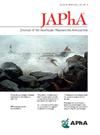Take care of the patient: Pharmacists should advocate for overdose prevention centers as harm reduction
IF 2.5
4区 医学
Q3 PHARMACOLOGY & PHARMACY
Journal of the American Pharmacists Association
Pub Date : 2025-01-01
DOI:10.1016/j.japh.2024.102289
引用次数: 0
Abstract
Overdose prevention centers (OPCs) are places where people can bring previously obtained substances to use under the supervision of trained health care professionals who are prepared to intervene in the event of an overdose. Health care professionals, counselors, and peer support provide services including naloxone distribution, provision of sterile injection equipment, counseling services, referrals to necessary providers, and above all a safe and compassionate space for people to get the care they need. This is a method of harm reduction that has been used worldwide for decades and is now gaining traction in the United States. Pharmacists play a vital role in harm reduction for patients, and they should support the legalization and establishment of OPCs across the country to extend this essential service. A compelling body of evidence shows that OPCs reduce overdose deaths, emergency department visits for overdoses and wounds relating to injection drug use, and emergency medical service utilization in the area surrounding the centers. They also reduce drug use and discarded hazardous drug paraphernalia in public areas. OPCs also provide wrap-around services that aid in the holistic care of the person, including referrals to inpatient substance use treatment, detoxification, primary care, transportation, and housing. It is the responsibility of pharmacists to advocate for the needs of patients, and OPCs will provide an effective avenue for pharmacists to deliver counseling and medication management services as part of care of the individual.
照顾病人:药剂师应倡导将用药过量预防中心 (OPC) 作为减少伤害的机构。
用药过量预防中心 (OPC) 是人们可以携带以前获得的药物在训练有素的医疗保健专业人员的监督下使用的地方,这些专业人员随时准备在用药过量时进行干预。医疗保健专业人员、辅导员和同伴支持人员提供的服务包括纳洛酮分发、提供无菌注射设备、咨询服务、转诊到必要的医疗服务提供者,最重要的是,为人们提供一个安全和富有同情心的空间,让他们获得所需的护理。这是一种在全球范围内使用了几十年的减低伤害的方法,现在在美国也越来越受到重视。药剂师在为患者减少伤害方面发挥着至关重要的作用,他们应该支持过量用药预防中心的合法化并在全国范围内建立过量用药预防中心,以推广这一基本服务。大量令人信服的证据表明,用药过量预防中心减少了用药过量死亡、用药过量急诊就诊、与注射吸毒有关的伤口,并降低了中心周边地区的急诊服务使用率。预防用药过量中心还能减少公共场所的毒品使用和有害吸毒用具的丢弃。预防用药过量中心还提供有助于对患者进行全面护理的综合服务,包括转诊至住院药物使用治疗、戒毒、初级保健、交通和住房。药剂师有责任倡导满足患者的需求,而预防用药过量中心将为药剂师提供一个有效的途径来提供咨询和药物管理服务,作为个人护理的一部分。
本文章由计算机程序翻译,如有差异,请以英文原文为准。
求助全文
约1分钟内获得全文
求助全文
来源期刊
CiteScore
3.30
自引率
14.30%
发文量
336
审稿时长
46 days
期刊介绍:
The Journal of the American Pharmacists Association is the official peer-reviewed journal of the American Pharmacists Association (APhA), providing information on pharmaceutical care, drug therapy, diseases and other health issues, trends in pharmacy practice and therapeutics, informed opinion, and original research. JAPhA publishes original research, reviews, experiences, and opinion articles that link science to contemporary pharmacy practice to improve patient care.

 求助内容:
求助内容: 应助结果提醒方式:
应助结果提醒方式:


